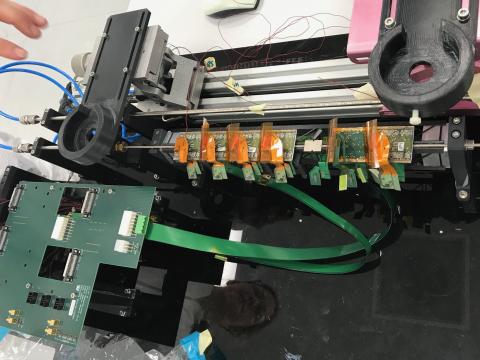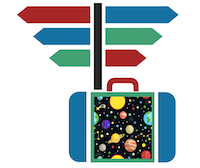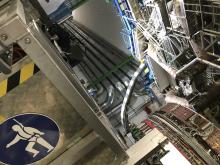I've introduced ATLAS and CERN to visitors primarily attracted by the scenery and the science. But what can I propose to an intern interested in logistics & QA/QC ? This page may turn into something interesting, may end-up in a total mess ... Let's try
ATLAS is a worldwide collaboration
CERN's members & associated states labs decide freely on which experiments they want to contribute, and knock on collaborations doors years (sometimes decades) before their country formally joins CERN. The process always starts through motivated individuals and is essentially a bottom-up process. See for example Nepal, moving recently from individuals to cooperation agreement , and Serbia joining after decades of participation to experiments.
The ATLAS collaboration web site provides the list of contributing institutes. Some of them are supported by the same national founding agency, in France CNRS/IN2P3 and CEA/IRFU . But each of them contributes individually and has 1 voice in the Collaboration Board ( ~the parlement, which meets 3 times per year and decides on new members).
The spread of ATLAS members nationalities is even wider, as individuals may work for any institute. We all have at CERN the status of User, although the fraction of time we spend on site depends on our activity ( from few weeks per year for meetings to full time for detector related tasks )
To be listed in the authors of ATLAS papers, physicists must devote 30 % of work time to service tasks. The author list is voluntarily alphabetic, as in theory each physicist is supposed to cover over years service work, detector R&D, data quality analysis and physics studies. The overall balance is checked within each institute, which contributes to ATLAS common founds proportionally to its number of authors. Physicists usually work on 1 experiment.
Engineers do not sign physics publications, but are included in the (less frequent) technical papers or Design Reports (LAPP team is listed page 437). They each develop a professional and technical expertise which is used in turn in specific periods of the lifetime of several experiments.
Partnerships with industry are essential in the detector R&D phase. CERN favours partnerships, knowledge transfer and has very strict procurement rules to balance contracts and purchase between member state industries, proportionally to their financial contribution. This is only one part of the story, as CERN is responsible for the LHC accelerator but detectors are build and financed by the collaborations institutes. Through industrial partnerships and co-development, the economic impact ( ratio between cost and indirect benefit for industry ) is estimated to be ~2.5 for France [ need a reference here, TBD ]. At the lab level, contacts with local and specialised companies are also essential, but it is best if the lab engineers describe this by themselves :-)
ATLAS is a detector
The intro video shown for years to all surface visitors was recently completed by a 360 tour of the underground experiment and related services.
To understand more about the basic principles of particle detection, one has to go back to videos made years ago, when ATLAS was 15 years old and still being assembled (plus cope with the outdated music, sorry) : Episode 1 , Episode 2.1 (the most important maybe) and Episode 2.2
Finally beam arrived, and a long set of ATLAS blogs describe some of the excitement. My favourite, probably because I was there, is that video about the start of the Run2, in 2015. We are now in the middle of the second technical stop (LS2), where the whole LHC acceleration chain & detectors are fixed and prepared for Run3. ITK is due for the next one, Run4, also called HL-LHC = high lumi LHC, where the whole ATLAS central tracking will be replaced. The HL-LHC project for which ITK is being designed is described on the LHC-France web site
ATLAS is an experiment
Data ! The basics in 2 videos : treatment , visualisation .
The CERN summer students lectures are a gold mine, if one has time and the will to go through some of the recordings. My favourites are :
- Tara Shears's "particle world" lectures [1], [2], [3] on elementary particles and how they were discovered is a must, repeated every year.
- Isabelle Wingerter's 2018 lectures [1], [2],[3],[4],[5] on instrumentation and detector concepts.


